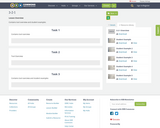
Contains tool overview and student examples
- Subject:
- Elementary Education
- English Language Arts
- Reading Foundation Skills
- Material Type:
- Lesson Plan
- Author:
- Lisa Schnurstein
- Date Added:
- 05/22/2019

Contains tool overview and student examples

Civil rights for Black Americans was not on the national agenda in the 1930s. Segregation and subordination of Black Americans were firmly rooted throughout American society and in all parts of the country. The Great Depression and later the emerging war crisis in Europe dominated national attention. Southerners in Congress opposed changes to help Black Americans, including anti-lynching bills, and amended New Deal legislation to deny Black Americans the benefits and programs being offered to white citizens. This module examines the leadership of three very different Americans—First Lady Eleanor Roosevelt, world-renowned contralto Marian Anderson, and labor leader A. Philip Randolph. They each shared strong inner voices, an ability to imagine a world beyond the bounds allowed by the politics and society of their day, and a willingness to take risks for controversial civil rights advances in which they believed—all at a time when segregation and Black American deprivation were central aspects of American society in every part of the country.

This course will explore the state of the art in common sense knowledge, and class projects will design and build interfaces that can exploit this knowledge to make more usable and helpful interfaces.
This year’s theme will be about how common sense knowledge differs in different languages and cultures, and how machine understanding of this knowledge can help increase communication between people, and between people and machines.
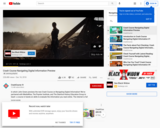
In which John Green previews the new Crash Course on Navigating Digital Information! We've partnered with MediaWise, The Poynter Institute, and The Stanford History Education Group to teach a course in hands-on skills to evaluate the information you read online. The internet is full of information, a lot of it notably wrong. We're here to arm you with the skills to separate the good stuff from the inaccurate stuff and browse the internet with confidence.
Special thanks to our partners from MediaWise who helped create this series:
The Poynter Institute
The Stanford History Education Group (sheg.stanford.edu)

Learn more about the amazing world of science by enjoying our fun science experiments, cool facts, online games, free activities, ideas, lesson plans, photos, quizzes, videos & science fair projects.
Science is a fascinating subject, there are many great ideas that will help you make a great science fair project.
Find science games, experiments, facts, projects, videos, quizzes, lessons and images related to the topic of your choice.
Put on your safety glasses & lab coat and get to work on a fun science fair project.
Here's a few of our ideas for science fair projects.

Students will practice defending their opinions and beliefs by taking stances on different topics. They will practice being able to explain their reasons for being in each position.

Students will practice defending their opinions and beliefs by taking stances on different topics. They will practice being able to explain their reasons for being in each position.
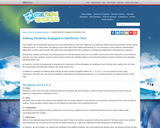
This article describes how to help students engage with nonfiction text by asking questions, identifying facts, making connections, and reflecting on the text. A template for use with students is included.

The BBC's brief guide on the Arabic language includes 4 different sections including facts about the language, a list of 20 key phrases with audio files, a section on the alphabet with audio files, and a group of videos, although the videos are not available in the US. The Arabic used in the words and phrases is MSA. The page's text can be viewed in English or Arabic.

Learn facts about a solar eclipse and how to safely view one.

Students will discuss different statements and identify which statements they believe are true and which one is false. They will converse with their partners and group members to explain why they believe the statements are true or false.
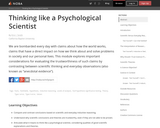
We are bombarded every day with claims about how the world works, claims that have a direct impact on how we think about and solve problems in society and our personal lives. This module explores important considerations for evaluating the trustworthiness of such claims by contrasting between scientific thinking and everyday observations (also known as “anecdotal evidence”).
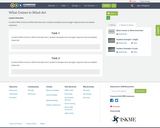
Contains What Comes to Mind Overview and 2 student examples (one stronger response and one weaker response)
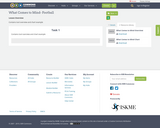
Contains tool overview and chart example
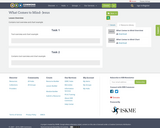
Contains tool overview and chart example